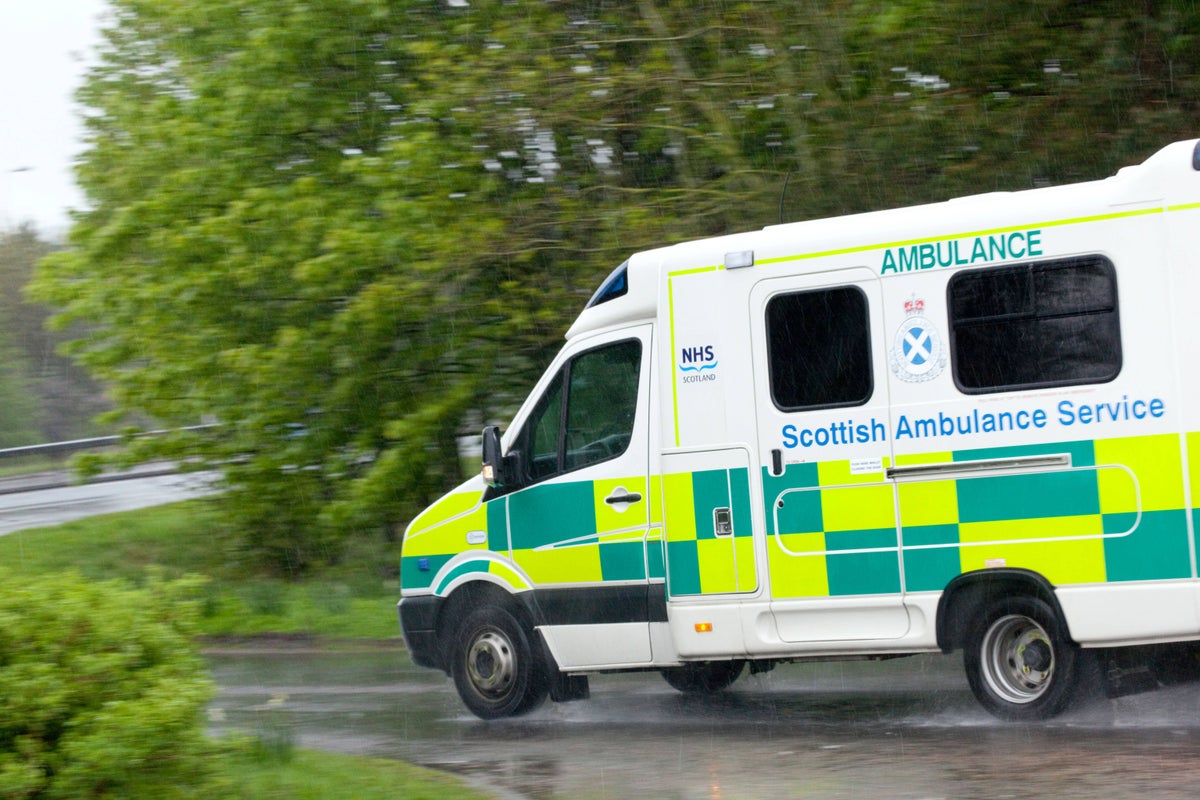
Scottish Ambulance Service (SAS) staff have become the latest public sector workers to announce they will go on strike in a pay dispute.
The GMB trade union said staff at the ambulance service would strike for one day from 6am on Monday November 28.
Unite, which also represents SAS workers, has already announced its members will work to rule from November 25.
Nurses and teachers have also voted for strike action as they bid for improved pay offers.
If the GMB’s industrial action goes ahead, it will be the ambulance service’s first strike in decades.
The workforce is being expected to fill more and more gaps in service provision— Karen Leonard, GMB Scotland
GMB Scotland organiser Karen Leonard said: “Staff in the Scottish Ambulance Service have worked throughout the depths of the pandemic on the frontline of our public services, all the while dealing with an understaffing crisis and now a cost-of-living crisis this winter.
“These strikes are a direct response to the Scottish Government who have failed to give key, frontline workers the pay rise that they deserve and who have overseen years of managed decline in the health services that so many rely on.
“Staff are rightly angry with how they’re being treated.
“They have been overlooked, overworked, undervalued and underpaid.
“The workforce is being expected to fill more and more gaps in service provision.”
She said the current pay offer was well below inflation.
Ms Leonard continued: “Since GMB’s members announced their mandate for strike, he (Scotland’s Health Secretary Humza Yousaf) has done nothing to prevent it going ahead.
“He has failed to come back with the significantly improved offer he promised.
“He has put off meeting with our members to discuss an offer. He has been totally missing.
“Humza Yousaf can’t stick his fingers in his ears and hope workers will go away. He has to meet with them.”
Scottish Labour said ministers should now consider sending in the Army to keep ambulance services running if the strike goes ahead.
The party’s health spokeswoman Jackie Baillie said: “No one wants these strikes, but I understand that workers have been left with no other option.
“The problems that have been building for years are now at crisis point, but Humza Yousaf is just not listening.
“It’s not too late for the SNP to prevent these strikes by getting round the negotiating table and delivering a fair pay deal.
“We need to start contingency planning now to avoid disaster, and the SNP must consider calling in the Army – but that is no substitute for trained paramedics, who need to be properly valued and fairly paid.”
Dr Sandesh Gulhane, from the Scottish Conservatives, said it was “disgraceful” that things have been allowed to get to this point.
He said: “The Health Secretary has already shamefully lost the trust of our nurses, now ambulance workers feel they have no choice but to strike too.
“Our hard-working NHS staff have been pushed to the brink by years of SNP mismanagement, which has led to some of the worst working conditions in living memory.
“The SNP Government must now urgently work to avert these dangerous strikes and set out contingency plans in order to protect lives, if they fail to do so.
“Sadly, the Health Secretary has proved himself completely unfit to deal with these grave challenges. It’s time Nicola Sturgeon stepped in, sacked Humza Yousaf and gave our heroic ambulance staff the support they need.”
Health secretary Humza Yousaf said he was “disappointed” ambulance workers had voted for industrial action. He said: “I have always stressed that dialogue is essential and I am committed to ongoing discussions to avoid strikes. We await the conclusion of all staffside consultations, expected early next week.
“Pay negotiations take place collectively through the Scottish Terms and Conditions Committee and it is right and proper that they continue to do so. I have contacted trade unions this week to reaffirm my commitment to ongoing discussions and dialogue.
“The safety of patients is our top priority and while we will do everything possible to avoid strike action we are working with boards to put detailed contingency plans in place.”







